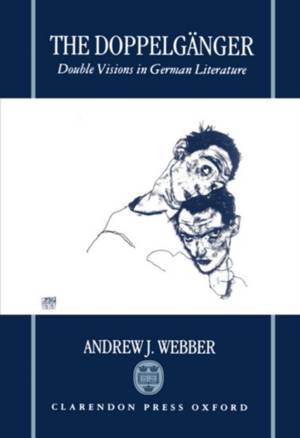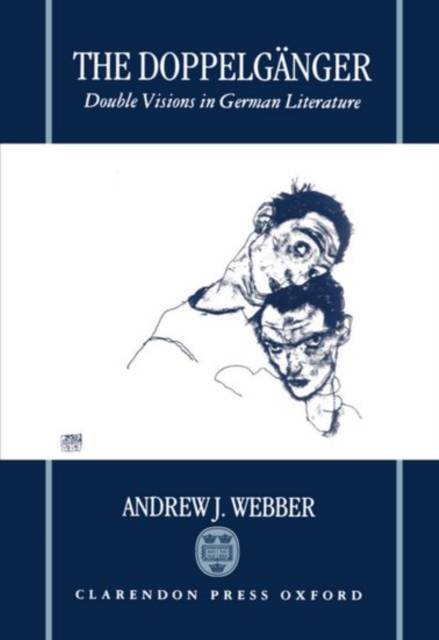
- Afhalen na 1 uur in een winkel met voorraad
- Gratis thuislevering in België vanaf € 30
- Ruim aanbod met 7 miljoen producten
- Afhalen na 1 uur in een winkel met voorraad
- Gratis thuislevering in België vanaf € 30
- Ruim aanbod met 7 miljoen producten
Zoeken
The Doppelganger
Double Visions in German Literature
Andrew Webber, Andrew J Webber
Hardcover | Engels
€ 475,45
+ 950 punten
Omschrijving
Ever since its literary coinage in Jean Paul's novel, Siebenkä (1796), the concept of Doppelgänger has had significant influence upon representations of the self in German literature. This study charts the development of the double from its origins in the Romantic period, through its more marginal, but nonetheless significant, manifestations in the post-Romantic culture, to its revival at the fin-de-siècle and transfer to the silent screen.
Specificaties
Betrokkenen
- Auteur(s):
- Uitgeverij:
Inhoud
- Aantal bladzijden:
- 390
- Taal:
- Engels
Eigenschappen
- Productcode (EAN):
- 9780198159049
- Verschijningsdatum:
- 18/07/1996
- Uitvoering:
- Hardcover
- Formaat:
- Genaaid
- Afmetingen:
- 140 mm x 216 mm
- Gewicht:
- 644 g

Alleen bij Standaard Boekhandel
+ 950 punten op je klantenkaart van Standaard Boekhandel
Beoordelingen
We publiceren alleen reviews die voldoen aan de voorwaarden voor reviews. Bekijk onze voorwaarden voor reviews.








